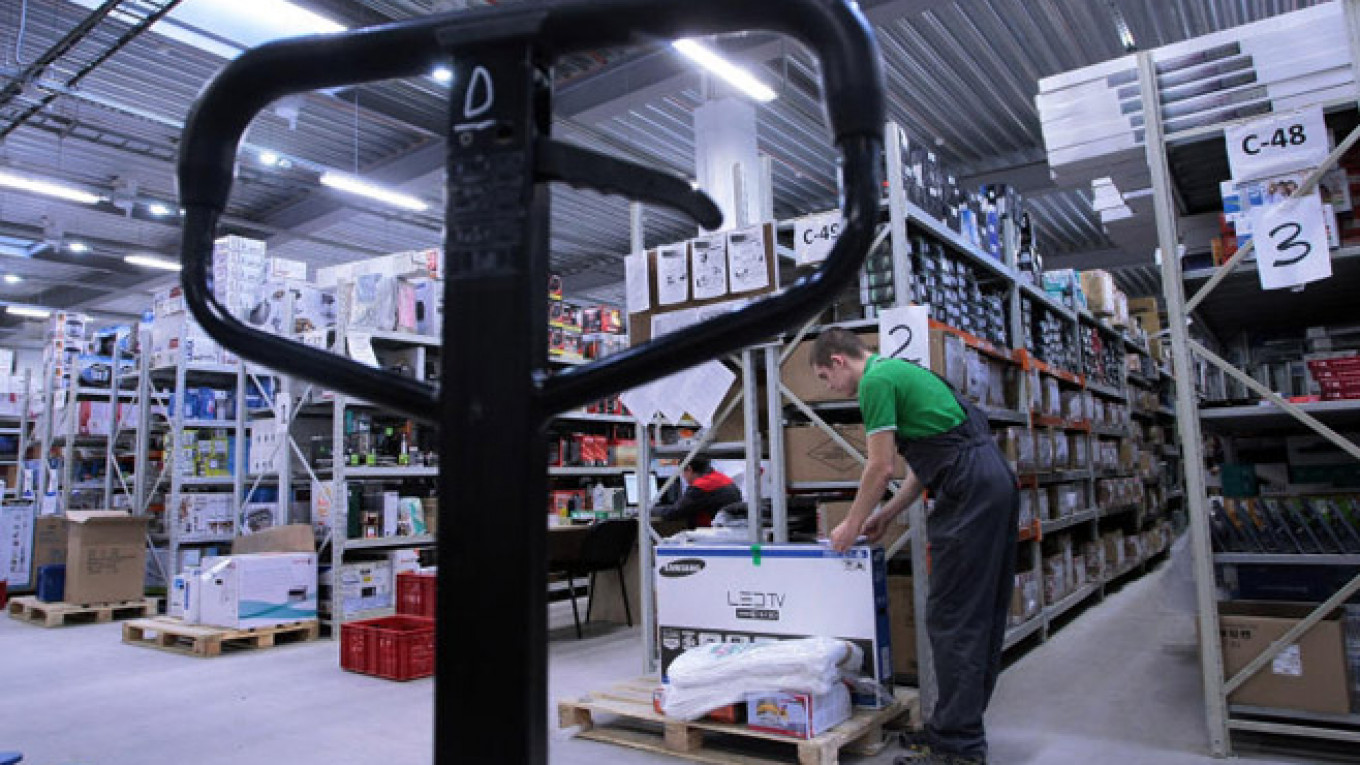Russians are set to shell out up to 240 billion rubles ($5.1 billion) on foreign commerce websites this year, doubling last year's spending in an already booming market despite Russia's economic troubles, news agency RBC reported analysts as saying on Tuesday.
The 240 billion rubles estimate was reached by the Association of Online Vendors and Enter Vision, the research arm of Russian online retailer Enter.ru.
Chinese retail giant Alibaba's AliExpress arm leads the pack with 35 percent of cross-border online trade, and in June became one of Russia's top 10 most-visited websites, they said. U.S. website eBay took second place with 30 percent of the market, while U.S. retailer Amazon claimed 7.5 percent.
Clothes account for 48.8 percent and accessories 34.6 percent of purchases in 2014, according to RBC. Russians spend an average of 2,750 rubles ($58.6) on each foreign online purchase, although more than half of buyers limit themselves to purchases averaging 1,500 rubles ($32).
AliExpress, where a typical Russian bill amounts to $20, has thrived due its popularity in regions outside the wealthy centers of Moscow and Saint Petersburg, according to Mikhail Burmistrov, CEO of consulting firm INFOline-analitika.
This growth comes as Russia's economy struggles to fend off recession amid falling oil prices and Western sanctions over Moscow's hand in Ukraine crisis. The ruble has lost nearly 30 percent to the U.S. dollar since January. Inflation is on course to hit 9 percent by the year's end, Russian Economic Development Minister Alexei Ulyukayev said Monday.
But despite the economic headwinds, the Association of Online Vendors expects the online market to grow by 20 percent next year. While the ruble's fall has made foreign currency pegged goods more expensive, foreign online retailers still provide desired imported products at cheaper prices than domestic retailers.
Russia's more than 140 million citizens have already demonstrated their eagerness for shopping online. The country's e-commerce market last year was valued at $17 billion, a 30 percent increase over 2012, according to a March report by the Association of Online Vendors.
A Message from The Moscow Times:
Dear readers,
We are facing unprecedented challenges. Russia's Prosecutor General's Office has designated The Moscow Times as an "undesirable" organization, criminalizing our work and putting our staff at risk of prosecution. This follows our earlier unjust labeling as a "foreign agent."
These actions are direct attempts to silence independent journalism in Russia. The authorities claim our work "discredits the decisions of the Russian leadership." We see things differently: we strive to provide accurate, unbiased reporting on Russia.
We, the journalists of The Moscow Times, refuse to be silenced. But to continue our work, we need your help.
Your support, no matter how small, makes a world of difference. If you can, please support us monthly starting from just $2. It's quick to set up, and every contribution makes a significant impact.
By supporting The Moscow Times, you're defending open, independent journalism in the face of repression. Thank you for standing with us.
Remind me later.






